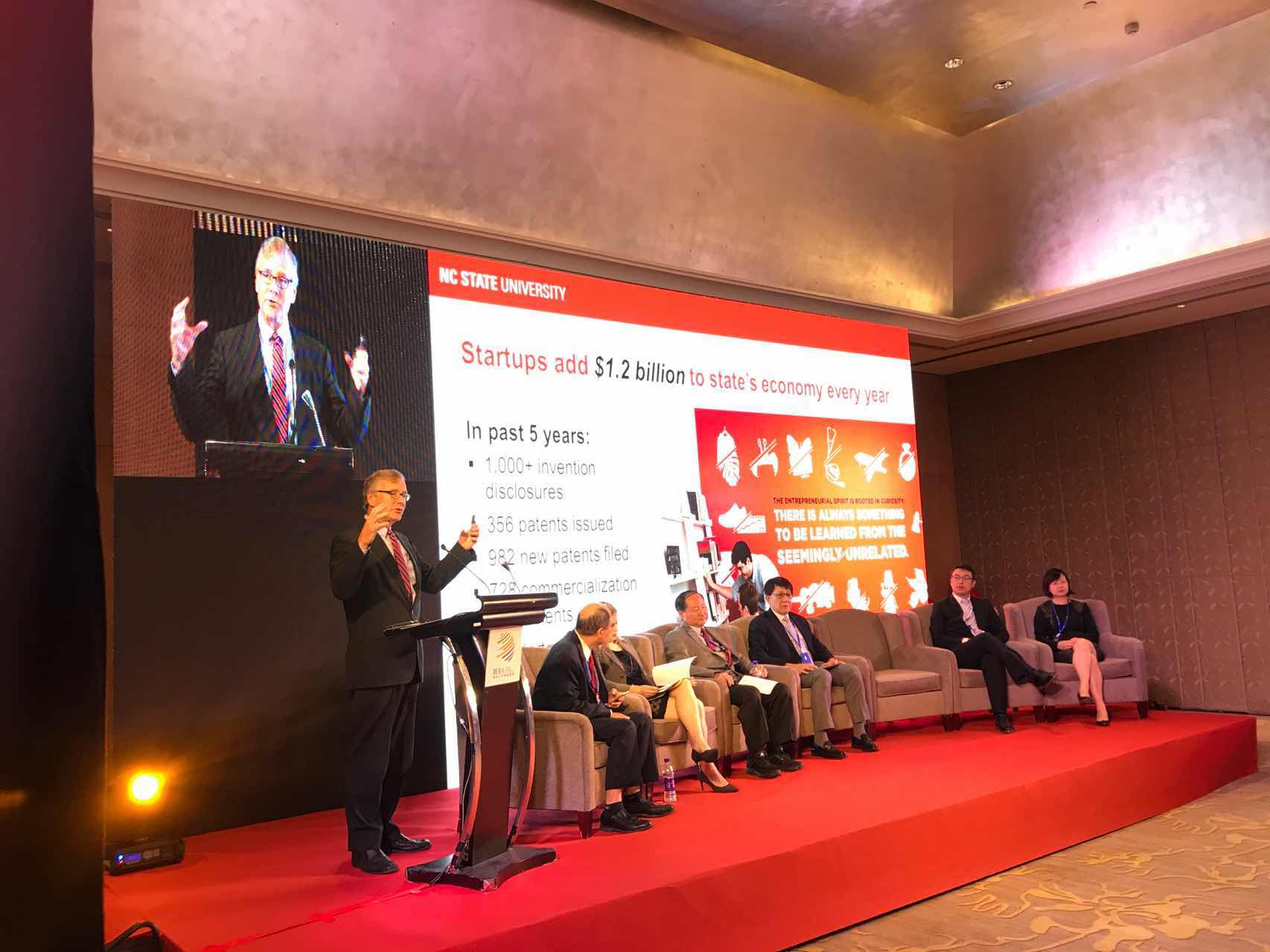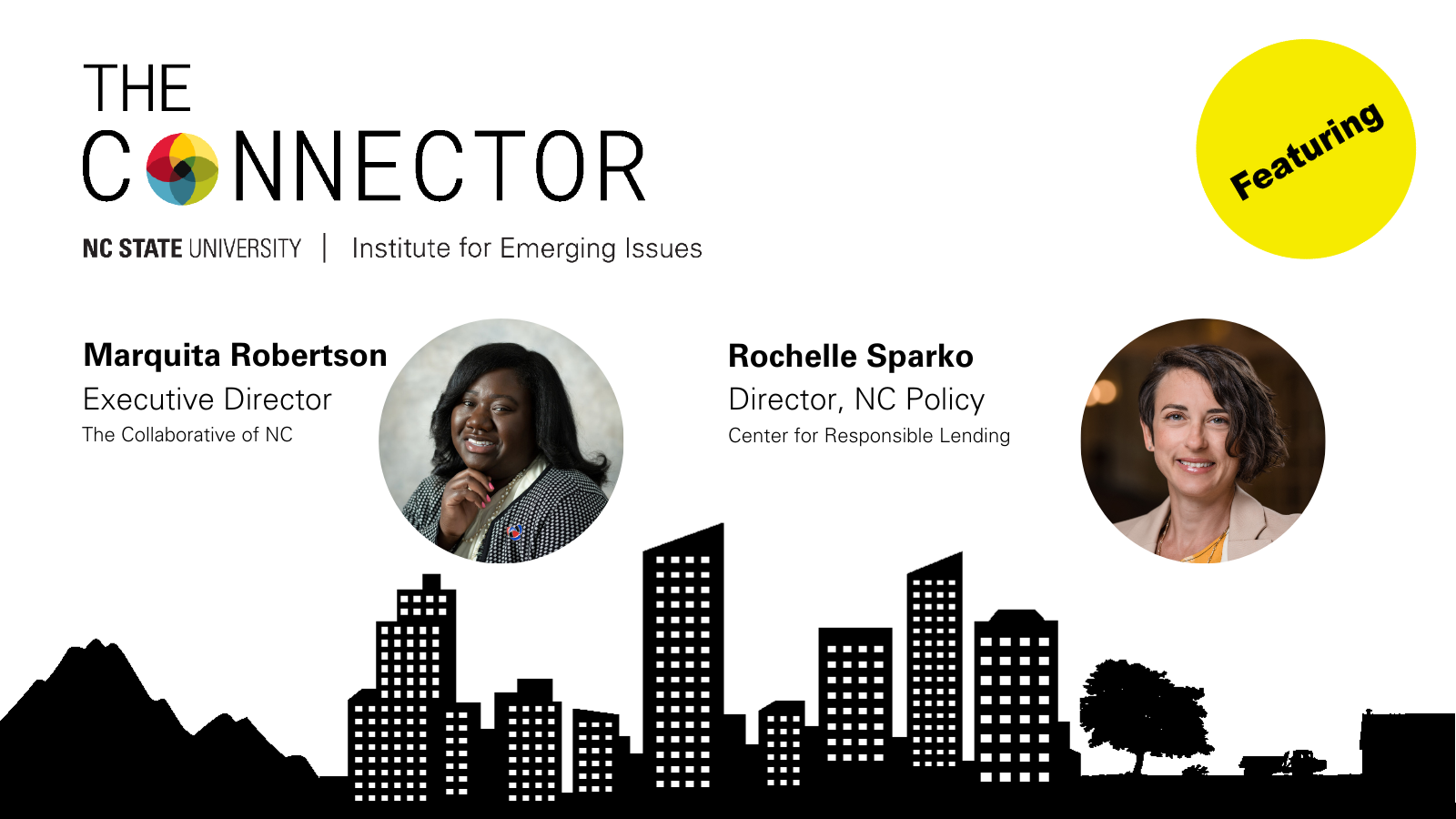Greetings from China | Day 5

 IEI Director Leslie Boney is spending the week in China as a guest of the International Universities Innovation Alliance. He’s sharing some thoughts as the country’s “Great Firewall” permits.
IEI Director Leslie Boney is spending the week in China as a guest of the International Universities Innovation Alliance. He’s sharing some thoughts as the country’s “Great Firewall” permits.
Day 5:
We had a good conference in Beijing today – a chance to share with Chinese universities, investors and government types how US universities think about their role in the economic life of their surrounding communities.
I had a chance to share some information about NC State’s efforts to encourage entrepreneurship on campus, spin out companies and license technologies to investors (people seemed very interested in the recent investment of Tencent — parent company of WeChat, China’s version of Snapchat — in an NCSU genetic engineering spinout called Locus Biosciences). Later in the day, I talked about how the university both projects itself out into the community, through the work of the Institute for Emerging Issues, our economic development work, our continuing and distance education, our extension functions, internships and faculty working in communities. Then I looked at what we do to welcome people on to campus, including the 76 business, government and nonprofit entities on Centennial Campus, hosting events at the McKimmon Center, Hunt Library and other places, cultural and theatre events.
My colleagues talked about the work of their campuses: Anne Kaplan from Northern Illinois University discussed how her campus helped bring together the players to create a thick broadband network. Cynthia Orellana from UMass Boston described a pipeline her institution has built with high schools and community colleges to meet the city’s tech talent gap. Heather Hage from SUNY’s Research Foundation talked about the tax-free zone the system has created for startups locating near campus. Jim Woodell from the Association of Public and Land-grant Universities outlined the program APLU has created to encourage more of this sort of thinking by its member institutions.
We were selling the notion that universities can and should be part of the economic and social life of their communities. It wasn’t clear who was buying.
There appear to be a couple of cultural barriers at play.
First, universities in China appear to operate pretty separate from the communities they live in. Universities teach and do research; they don’t have the third mission of “public service.” That’s just not something universities here do.
Second, the concept of “stakeholder engagement” is a novel one in China. I’ve never really understood the origin of the term “stakeholders,” (I always imagine people holding brandishing sharpened pieces of wood) but the idea that it might be good to ask the people affected by a public project what they think about it is pretty well-accepted in the US.
Not so much in an autocracy. Government and business don’t need to involve universities (or citizens) in their planning. Universities don’t need to reach out to others to do their work. That may be why whenever one of the members of our delegation used the word “engagement” during our visit, there was a hiccough in translation.
As China continues its gradual transition away from autocracy (the “50 Year Plan” calls for a move to democracy by 2049) and tries to implement the government plan to become more innovative and entrepreneurial, there are a few more barriers like this.
- For true collaboration between countries, free data exchange is table stakes. For example, China is doing much of the gene sequencing for the US now. Data comes in to China with no problem, but data trying to get back out runs into what some people call “the Great Firewall of China,” a roadblock caused while some of the estimated 250,000 Internet screeners try to monitor the activity of China’s estimated 731 million Internet users. My personal experience: Google bad; Yahoo good.
- Despite the generous offers we saw to provide free space for US startups to grow their businesses in China, and aggressive efforts to recruit back “young talents” (highly-educated Chinese now living in other countries), the program won’t go far until the country establishes better intellectual property protections. Companies developing new products or technologies need confidence that their inventions will be secure.
- On the student side, clearly the Chinese government is deeply interested in raising up more inventive students. In our meeting this week with China’s Vice Minister of Education Xue Tian, he spoke at length about “young maker” competitions, creation of new “maker centers” and noted that “the 21st century belongs to young people.” But Chinese education administrators I spoke with say much of teaching is still lecture style, with little opportunity for students to ask questions and test out new ways of thinking. In order to be fully successful in the transition, China needs to adopt teaching styles to be more interactive.
But these things are only slowing down China’s transition to a knowledge-based economy, not stopping it. The country is still exploding with new ideas. A new study finds that China has 29% of the world’s 221 “unicorns,” startups valued at $1 billion or more. Its 7500 incubators have spun out more than 220,000 businesses. While we were there, we heard from inventors who are re-imagining GPS, creating new fuel cell technologies, and designing completely new models for how cities work. And today the government announced a new higher speed train that will go 210 miles per hour rather than “just” 180, and a business announced a joint partnership with New Zealand to start producing cargo-carrying drones.
 There are so many big hairy problems in the world right now. Can we grow enough food and distribute it properly? Where will energy come from? How do we cure incurable diseases and treat chronic ones? What do we do about migration? Security? Terrorism? Connecting smart Chinese to smart Americans and the rest of the world gives us a better chance to solve more of those problems than if we work in isolation.
There are so many big hairy problems in the world right now. Can we grow enough food and distribute it properly? Where will energy come from? How do we cure incurable diseases and treat chronic ones? What do we do about migration? Security? Terrorism? Connecting smart Chinese to smart Americans and the rest of the world gives us a better chance to solve more of those problems than if we work in isolation.
And there are plenty of problems around the corner from Chinese universities in every city: pollution, food safety, fuzzy property rights, quality of life, quantity of jobs, retraining. Turning Chinese universities loose on those problems could make a huge difference.
It would be absurd to think that our delegation visit changed any of that in a substantive way. But we all learned a lot, and maybe we gave the inevitable change a nudge. Old Chinese proverb: “The journey of a thousand miles (well, “li” but that’s confusing) begins with one step.” OK, there’s another step.


